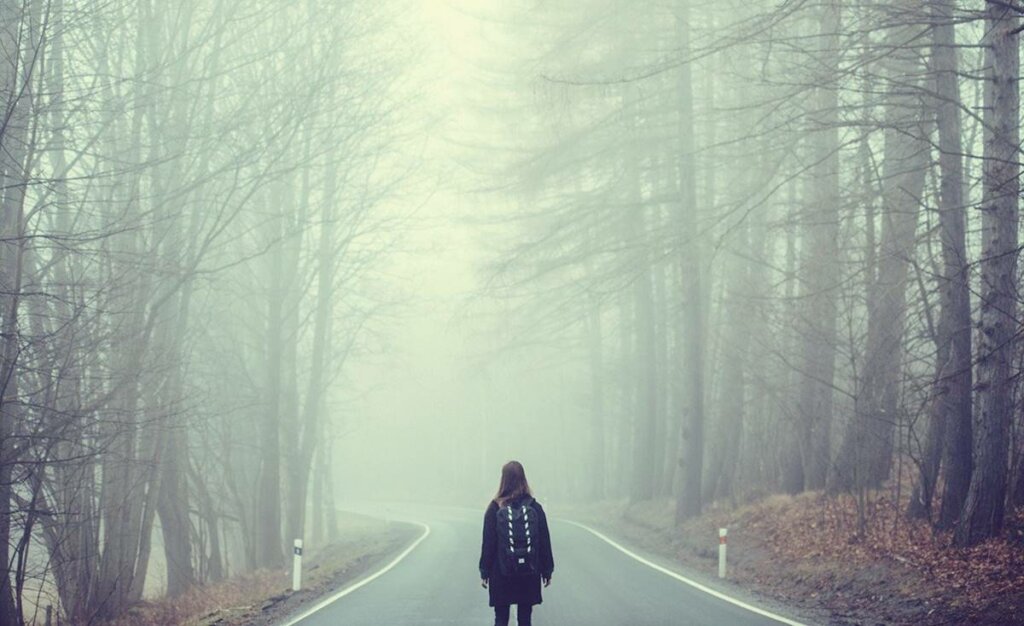Feeling Like You No Longer Really Want to Socialize


Written and verified by the psychologist Valeria Sabater
“I don’t really feel like I want to socialize anymore. I used to accept every invitation that came my way but now it’s really difficult for me to get out and meet people” If this sounds like you, you’re not the only one. In fact, in the last 18 months, in the wake of the pandemic, the social habits of many people have changed.
However, is this really a problem? Obviously, each individual decides how they want to live and occupy themselves at all times. This isn’t a pathological issue. However, this particular phenomenon has a certain social and psychological interest. That’s because, sometimes, certain events urge us to reflect on certain aspects of our lives.
Before the pandemic, you may have just tended to do things out of force of habit. Now, you probably choose to “feel” more and are thus inclined towards more specific and emotionally significant experiences. However, in some cases, the desire to socialize less can become problematic, leading to social anhedonia. We take a look at this here.
Social interaction is a decisive factor for your physical and mental well-being. Nevertheless, sometimes this psychological reality decreases due to various factors.

Why you feel like you no longer want to socialize
The fact of having spent a lot of time at home has possibly changed you more than you think. For example, it altered your interaction patterns, and even your way of working followed a different pattern. Furthermore, your home became a refuge. As a matter of fact, there are those who still resist going out into the world in the same way as they did before, with the same energy, enthusiasm, and confidence.
This means that many people now experience less willingness to socialize. They just don’t feel the same as they did before. In fact, it’s become so widespread that it’s been developed into a phenomenon. Professor Jeff Hancock conducted a study in this respect. In this work, they identified what they called “butler lies.”
These are the excuses that you send on WhatsApp when someone suggests meeting up. Indeed, it seems that, lately, messages such as “my phone was on silent so I didn’t see your message” or “I’ve disconnected myself from social media recently” or “I’ve got so much to do” are common.
Therefore, it would appear that the previous hyperconnectivity and need to respond to almost any invitation immediately and say yes has certainly changed.
Without a doubt, interaction habits have changed. In some cases, this can be beneficial. It allows you to invest more in yourself and, decide what’s best for you at all times. However, it can also sometimes reveal the problem of social anhedonia.
You’re not feeling well
When you’re not feeling mentally well, you just don’t feel like interacting with others. In fact, you may not even want to leave the house. As a matter of fact, it’s a sad reality that we still don’t talk enough about the underlying anxiety and depression problems that are increasingly evident in the population today.
In these cases, people tend to feel disinterested, as well as experiencing a lack of energy and courage to communicate with others. They also might experience feelings of unreality, and a lack of meaning in connecting with friends, family, etc. Furthermore, behind these kinds of realities, there may be a mood disorder.
Social anhedonia
Social anhedonia isn’t directly related to depression or anxiety. In fact, it involves a preference for solitude, a lack of social skills, and a desire for isolation. Sufferers are often extremely psychologically vulnerable. As a matter of fact, they experience a complete lack of interpersonal reward in interactions.
This state often becomes chronic. Sometimes it’s also directly linked to autism spectrum disorder or schizophrenia.
Rethinking what and who you want in your life
When you feel like you no longer really want to socialize, you could be in the middle of a vital transition. That’s because difficult times often cause you to reflect. Consequently, this lack of desire to meet your friends or colleagues could be due to the fact that you’re considering making some changes.
Moments of crisis make you rethink what you want in your life and who you want in it. This process takes time. For this reason, it’s usual to want to disconnect from the world so you can think and come to a decision.

You need time to regain your desire to socialize
There’s no need to go back immediately to the way you were. In fact, it’s not advisable that you recover your social life all at once and accept every invitation that comes your way. That’s because the process will take time, and you need to establish a pattern for recovering your real and physical connections. Therefore, if you feel that your desire to socialize isn’t the same as before, give yourself some more time.
Start with meeting a close friend. Then, expand your circle to include the rest of your favorite people. At the end of the day, quality counts more than quantity and if there’s something that we’ve all learned in these last months, it’s that life is both limited and precious. Therefore, enjoy it at your own pace, in the way you want, and with whom you want. There’s no need to rush…..
“I don’t really feel like I want to socialize anymore. I used to accept every invitation that came my way but now it’s really difficult for me to get out and meet people” If this sounds like you, you’re not the only one. In fact, in the last 18 months, in the wake of the pandemic, the social habits of many people have changed.
However, is this really a problem? Obviously, each individual decides how they want to live and occupy themselves at all times. This isn’t a pathological issue. However, this particular phenomenon has a certain social and psychological interest. That’s because, sometimes, certain events urge us to reflect on certain aspects of our lives.
Before the pandemic, you may have just tended to do things out of force of habit. Now, you probably choose to “feel” more and are thus inclined towards more specific and emotionally significant experiences. However, in some cases, the desire to socialize less can become problematic, leading to social anhedonia. We take a look at this here.
Social interaction is a decisive factor for your physical and mental well-being. Nevertheless, sometimes this psychological reality decreases due to various factors.

Why you feel like you no longer want to socialize
The fact of having spent a lot of time at home has possibly changed you more than you think. For example, it altered your interaction patterns, and even your way of working followed a different pattern. Furthermore, your home became a refuge. As a matter of fact, there are those who still resist going out into the world in the same way as they did before, with the same energy, enthusiasm, and confidence.
This means that many people now experience less willingness to socialize. They just don’t feel the same as they did before. In fact, it’s become so widespread that it’s been developed into a phenomenon. Professor Jeff Hancock conducted a study in this respect. In this work, they identified what they called “butler lies.”
These are the excuses that you send on WhatsApp when someone suggests meeting up. Indeed, it seems that, lately, messages such as “my phone was on silent so I didn’t see your message” or “I’ve disconnected myself from social media recently” or “I’ve got so much to do” are common.
Therefore, it would appear that the previous hyperconnectivity and need to respond to almost any invitation immediately and say yes has certainly changed.
Without a doubt, interaction habits have changed. In some cases, this can be beneficial. It allows you to invest more in yourself and, decide what’s best for you at all times. However, it can also sometimes reveal the problem of social anhedonia.
You’re not feeling well
When you’re not feeling mentally well, you just don’t feel like interacting with others. In fact, you may not even want to leave the house. As a matter of fact, it’s a sad reality that we still don’t talk enough about the underlying anxiety and depression problems that are increasingly evident in the population today.
In these cases, people tend to feel disinterested, as well as experiencing a lack of energy and courage to communicate with others. They also might experience feelings of unreality, and a lack of meaning in connecting with friends, family, etc. Furthermore, behind these kinds of realities, there may be a mood disorder.
Social anhedonia
Social anhedonia isn’t directly related to depression or anxiety. In fact, it involves a preference for solitude, a lack of social skills, and a desire for isolation. Sufferers are often extremely psychologically vulnerable. As a matter of fact, they experience a complete lack of interpersonal reward in interactions.
This state often becomes chronic. Sometimes it’s also directly linked to autism spectrum disorder or schizophrenia.
Rethinking what and who you want in your life
When you feel like you no longer really want to socialize, you could be in the middle of a vital transition. That’s because difficult times often cause you to reflect. Consequently, this lack of desire to meet your friends or colleagues could be due to the fact that you’re considering making some changes.
Moments of crisis make you rethink what you want in your life and who you want in it. This process takes time. For this reason, it’s usual to want to disconnect from the world so you can think and come to a decision.

You need time to regain your desire to socialize
There’s no need to go back immediately to the way you were. In fact, it’s not advisable that you recover your social life all at once and accept every invitation that comes your way. That’s because the process will take time, and you need to establish a pattern for recovering your real and physical connections. Therefore, if you feel that your desire to socialize isn’t the same as before, give yourself some more time.
Start with meeting a close friend. Then, expand your circle to include the rest of your favorite people. At the end of the day, quality counts more than quantity and if there’s something that we’ve all learned in these last months, it’s that life is both limited and precious. Therefore, enjoy it at your own pace, in the way you want, and with whom you want. There’s no need to rush…..
All cited sources were thoroughly reviewed by our team to ensure their quality, reliability, currency, and validity. The bibliography of this article was considered reliable and of academic or scientific accuracy.
- Dodell-Feder, D., & Germine, L. (2018). Epidemiological dimensions of social anhedonia. Clinical Psychological Science. Retrieved from https://doi.org/10.1177/2167702618773740
- Hancock, Jeffrey & Birnholtz, Jeremy & Bazarova, Natalya (Natalie) & Guillory, Jamie & Perlin, Josh & Amos, Barrett. (2009). Butler lies: Awareness, deception and design. Proc. ACM CHI. 517-526. 10.1145/1518701.1518782.
- Kim H, Florack A. When Social Interaction Backfires: Frequent Social Interaction During the COVID-19 Pandemic Is Associated With Decreased Well-Being and Higher Panic Buying. Front Psychol. 2021 Jul 29;12:668272. doi: 10.3389/fpsyg.2021.668272. PMID: 34393902; PMCID: PMC8357996.
This text is provided for informational purposes only and does not replace consultation with a professional. If in doubt, consult your specialist.







